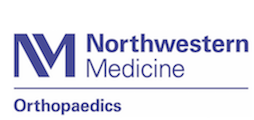|
|

|
« Back
I am a twin. I've heard that twins have more back problems than other people. Is this true?
|
|
We know now from many studies done over the years that back pain is a common problem among adults the world over. Disc degeneration and herniation seem to be the most common diagnosis among back pain sufferers. Efforts to understand disc degeneration and pain associated with the problem are ongoing.
Many people have disc problems and never know it. They have no symptoms of back or leg pain. There is no numbness in the back, buttock, or leg and no change in reflexes or weakness that are commonly reported by patients with symptomatic disease. Is there a reason why some patients develop symptoms and others do not?
Twin studies are often relied upon to sort out differences of this type. They can also be used to look for patterns of heredity. Twin studies have previously shown the impact of genetics on lumbar degenerative disc disease and disc herniation.
But there's no evidence that twins (as opposed to individuals who are not twins) have a greater risk of back problems. The twin factor comes in that when one twin develops disc degeneration with disc herniation, the other twin is more likely to develop the same condition.
Other studies have shown that people who have a family history of disc herniations have more severe disc herniations themselves. Now a new study adds support for a familial predisposition to lumbar disc disease -- not just twins but other members of the same age or generation (e.g., first cousins) seem to have an increased risk of developing degenerative disc disease.
The next step is to find out exactly what is the genetic link or abnormality. Is it in the cellular material that makes up the discs? Is there some miscoding on a particular gene that alters the biochemistry of the disc? Perhaps there is a genetic abnormality that changes the collagen protein in the disc.
By studying genes that might be involved, it may someday be possible to prevent disc disease before it ever develops or becomes symptomatic (painful).
|
References:
|
|
|
« Back
|
|
|
|
*Disclaimer:*The information contained herein is compiled from a variety of sources. It may not be complete or timely. It does not cover all diseases, physical conditions, ailments or treatments. The information should NOT be used in place of visit with your healthcare provider, nor should you disregard the advice of your health care provider because of any information you read in this topic. |
 | All content provided by eORTHOPOD® is a registered trademark of Mosaic Medical Group, L.L.C.. Content is the sole property of Mosaic Medical Group, LLC and used herein by permission. |
|
